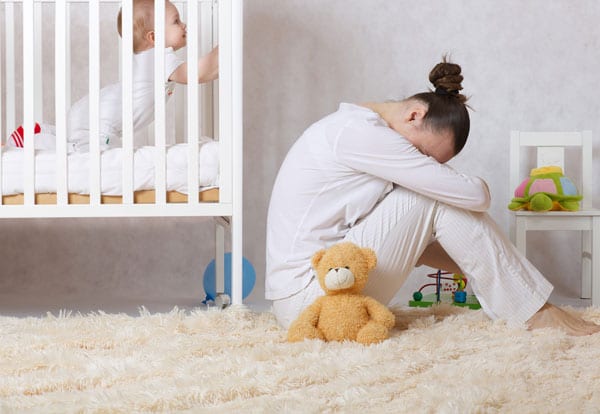Postpartum mood disorders can occur among women with a healthy pregnancy and birth.
Postpartum anxiety
Postpartum anxiety strikes 1 in 10 women, who feel overly anxious and worried and have trouble sleeping. Postpartum anxiety, left untreated, often turns into postpartum depression.
Postpartum obsessive-compulsive disorder
A form of postpartum anxiety is obsessive-compulsive disorder which involves repetitive actions such as exaggerated cleaning and double-checking on things that you perceive as a danger to your newborn.
Postpartum depression
Postpartum depression is the most common postpartum mood disorder—1 in 7 women experience it. Symptoms include crying more than usual, anger, feeling numb or disconnected from baby, doubting your ability to care for baby, worrying you will hurt baby, and withdrawing from loved ones. Postpartum depression is more severe than the baby blues and postpartum anxiety, lasting beyond a couple of weeks postpartum. Without treatment, it can last for months, even years. You may, or may not, have risk factors for postpartum depression (see box). Most women don’t seek help, but postpartum depression rarely goes away on its own, so it’s important to get help from a healthcare professional.
Postpartum psychosis
Recognize postpartum warning signs
Helpful resources
Read more about postpartum mood disorders at Postpartum Support International and the National Institute of Mental Health.
Read more:
New Dads Can Have Postpartum Depression, Too
Breastfeeding & Postpartum Depression
Do You Have Postpartum Depression?






Comments are closed.